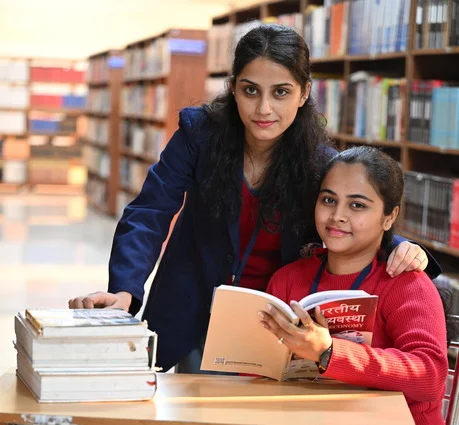The Master of Library and Information Science (M.Lib) program is a postgraduate degree focused on advanced knowledge and skills in library and information management. It covers subjects such as information organization, digital libraries, information technology, research methodology, and knowledge management. The program equips students with the ability to manage both traditional and digital libraries, use modern library software, and handle information retrieval systems efficiently. It prepares graduates for roles in academic, public, and special libraries, as well as in information centers and archives. The course promotes lifelong learning, research, and the use of ICT in library and information services.
Duration of programme
Level of Study

Planning, budgeting, HR management, and policy making in libraries.
Methods for organizing and sharing institutional knowledge.
Policies and practices for building and managing library collections
Creation and maintenance of e-resources and online databases.
Bachelor’s Degree in Library and Information Science (B.Lib / B.Lib.I.Sc) from a recognized university is mandatory.
Generally, a minimum of 50% marks in the qualifying degree (B.Lib) is required.